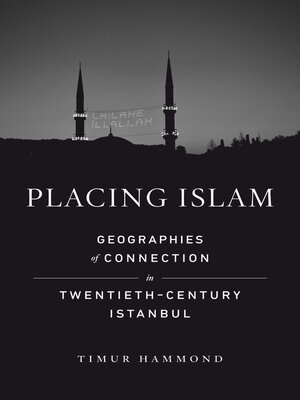Placing Islam
ebook ∣ Geographies of Connection in Twentieth-Century Istanbul · Islamic Humanities
By Timur Warner Hammond

Sign up to save your library
With an OverDrive account, you can save your favorite libraries for at-a-glance information about availability. Find out more about OverDrive accounts.
Find this title in Libby, the library reading app by OverDrive.



Search for a digital library with this title
Title found at these libraries:
| Library Name | Distance |
|---|---|
| Loading... |
A free ebook version of this title is available through Luminos, University of California Press's Open Access publishing program. Visit www.luminosoa.org to learn more.
For centuries, the Mosque of Eyüp Sultan has been one of Istanbul's most important pilgrimage destinations, in large part because of the figure buried in the tomb at its center: Halid bin Zeyd Ebû Eyûb el-Ensârî, a Companion of the Prophet Muhammad. Timur Hammond argues here, however, that making a geography of Islam involves considerably more. Following practices of storytelling and building projects from the final years of the Ottoman Empire to the early 2010s, Placing Islam shows how different individuals and groups articulated connections among people, places, traditions, and histories to make a place that is paradoxically defined by both powerful continuities and dynamic relationships to the city and wider world. This book provides a rich account of urban religion in Istanbul, offering a key opportunity to reconsider how we understand the changing cultures of Islam in Turkey and beyond.
For centuries, the Mosque of Eyüp Sultan has been one of Istanbul's most important pilgrimage destinations, in large part because of the figure buried in the tomb at its center: Halid bin Zeyd Ebû Eyûb el-Ensârî, a Companion of the Prophet Muhammad. Timur Hammond argues here, however, that making a geography of Islam involves considerably more. Following practices of storytelling and building projects from the final years of the Ottoman Empire to the early 2010s, Placing Islam shows how different individuals and groups articulated connections among people, places, traditions, and histories to make a place that is paradoxically defined by both powerful continuities and dynamic relationships to the city and wider world. This book provides a rich account of urban religion in Istanbul, offering a key opportunity to reconsider how we understand the changing cultures of Islam in Turkey and beyond.







